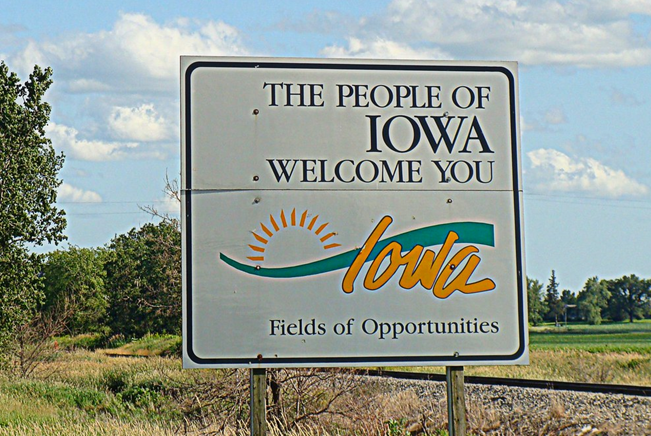Two cheers for Intra-party democracy, two jeers for Iowa

Adding an additional pre-Iowa post to Scott, Paul, and Erik‘s. I generally don’t presume to speak for my colleagues here, but I think I’m on solid ground when I saw this blog is, like sensible and decent people everywhere, deeply skeptical of both the democratic value of caucuses as a general matter, and the democratic value of Iowa (and New Hampshire) holding permanent “first in the nation” status in presidential primaries, on both state-specific (non-representative population) and general (no state should have a permanent advantage) grounds. No possible outcome tonight would make me anywhere near as happy as learning this is the last caucus.
Where I depart from many of my fellow political scientists is in my general support for a relatively robust institutionalized system of intra-party democracy. (For a typical case, see ch. 3 if this important book, or this article.) There’s a lot to hate about our primary system, but I’m inclined to defend a fairly robust system of intra-party democracy for a number of reasons. I’ve been at least partially convinced by a series of papers (also a new book I haven’t yet read) by Fabio Wolkenstein. If a realistic approach to democracy compels to concede that a) political parties, whatever their many and manifest shortcomings, are indispensible to the actual democratic politics, and b) inter-party democracy is (as a general matter, but even moreso in times of heightened partisanship) likely to fall short of a number of our democratic ideals, perhaps the best course is not to abandon those ideals but look for them elsewhere in the democratic system. I’m kicking around some ideas for my own articulation of the value of intra-party democracy, which would overlap considerably with Wolkenstein’s, albeit with somewhat less emphasis on its deliberative value and more on its contribution to coalition-building and the production of solidarity, which I’ll preview here when it’s a little more worked out.
Of
course, it’s hard to be idealistic about the intra-party democracy when we’re
in the thick of it; there’s much to hate right now. I find it easy to agree
with Erik’s recent post (my searches for this post came up empty) lamenting the
decline since the 2018 elections in intra-left discourse; while for a moment
there we were actually talking about big policy ideas in sometimes reasonably
thoughtful ways, it all went to hell when it came time to pick teams for the
presidential primaries. But I think the two moments are connected, even if they
don’t share the same temporal space; the debates of 2017-2018 were, to some
degree, tied to a reasonable hope that they might matter. Whatever else our
primaries are, they’re a time where aspiring nominees workshop a platform and
the first draft of legislative goals, short-term and long-term, and they get
revised, dropped, or centered and enhanced in light of their reception. The
existence of relatively democratic primaries give us a sense of ownership over
the production and promotion of these ideas. Intra-party democracy also
provides an avenue for democratic participation that isn’t so quickly and
necessarily reduced to the dread “lesser evil” voting; it provides a potential
opportunity for people to vote for who they think is best without risking
contributing to catastrophe. Finally, the value of intra-party democracy is
heightened by our adherence to the Duverger’s law. In multiparty
systems the ability to break away is often somewhat chimerical, when you’re
forced to negotiate with the same crew you split from if you want to take part
in governing. But in a two party system, where exit isn’t a meaningful option
for any group interested in using politics to actually exercise power, voice
becomes all the more essential.
My purpose here isn’t to promote a particular plan for enhancing intra-party
democracy in general or the American presidential primary in particular, but to
make a simple plea in the spirit of this value. One of the obviously undemocratic
features of the primary as it exists is the absurdly outsized weight it appears
to grant a few states. But we tend to overstate their predictive value. (Recall
2008, when there was a tendency to vastly overstate Obama’s advantage after
Iowa, followed by a tendency to vastly overstate Clinton’s strength after New
Hampshire.) As much as I personally find it unpleasant to see the primary drag
on too long, much of the power of Iowa, such as it is, is a power that we
choose to give it. By early March, we may well see delegate leads and stable
demographic voting patterns that narrow or even effectively end the race. But
until then, let’s not overreact. Iowa’s a small state, and polls suggest it’s
unlikely to produce much of a delegate count advantage for anyone. Valuing
intra-party democracy means not letting Iowa hijack it; hopefully we fix that
institutionally soon, but how we treat tonight’s results matters too.


